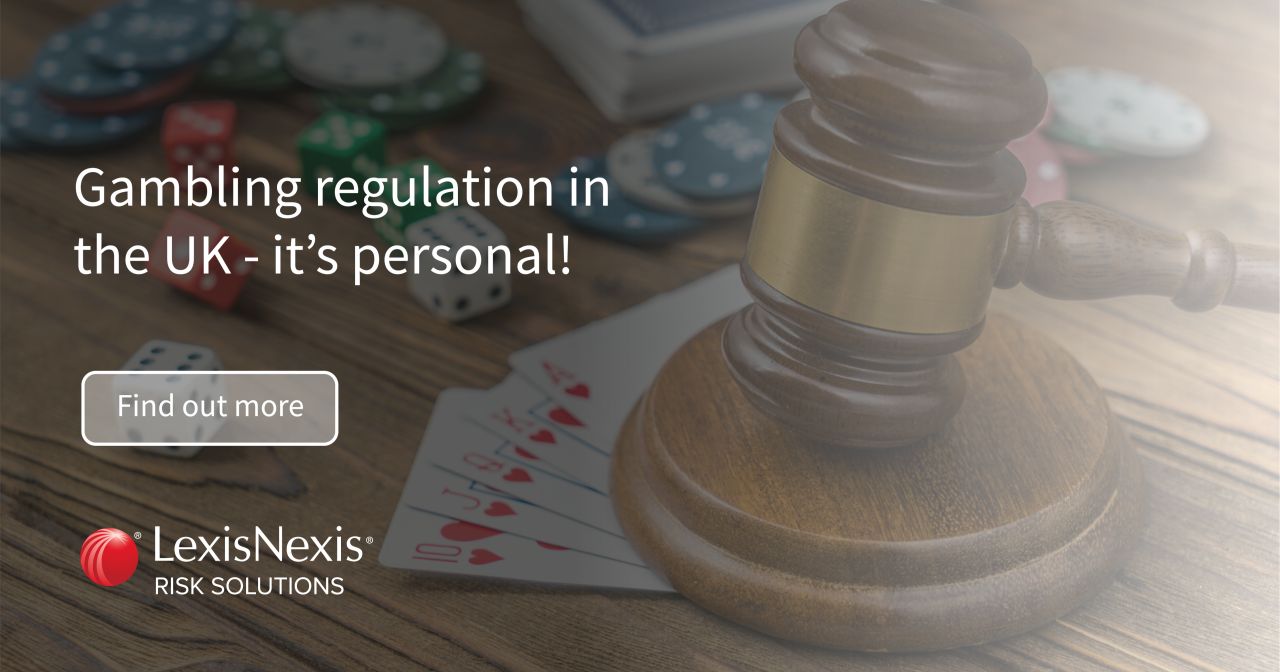Gambling regulation in the UK; it’s personal!
We’re delighted to welcome LexisNexis Risk Solutions as a sponsor for our 6th Annual Conference in September.
Read on as their Head of Gaming, Adam Doyle, discusses the value of regulation in player protection and its part to play in the battle to keep financial crime out of gambling.
Gambling regulation in the UK; it’s personal!
What is the role of the regulator?
The UK Gambling sector is one of the most highly regulated markets in the world, and those operating within it must navigate the ever-changing regulatory environment to remain compliant and avoid hefty fines from the UK gambling commission. But, with reports of more people turning to the black- market rather than consent to affordability checks, recently I’m asking the question – What is the role of the regulator?
On the face of it, the answer is easy. It’s to protect the people who play casino games and place bets on sporting events. But it goes far wider than that.
It’s about protecting players from harm…
I talk a lot about the importance of responsible gambling, but it’s easy to forget that behind every application or unusual interaction picked up by our technology, there’s a potentially vulnerable person. These are people who may have lost their job, or developed a gambling addiction. We all read stories of people losing their home, their family, or having no money left for basics like food. Us reaching out to offer support, could have a huge positive impact on these individuals’ life.
A recent study¹ of 2,003 students at UK universities found that 71% had gambled in the last 12 months. Of these, 28% were found to be at “moderate risk” and 24% exhibited “problem gambling” behaviour. Further to this, half of the respondents said gambling had impacted their university experience, with 13% having trouble paying for food, 10% missing lectures and tutorials, 10% seeing negative affects on assignments and grades, and 9% struggling to pay bills or accommodation costs.
It’s about protecting people from fraud…
There are also myriad ways that criminals try to take advantage of operators to commit crimes including money laundering and fraud.
Whether operator, supplier or regulator, we are all on the same team. We must work together to protect players from experiencing harm and keep crime out of gambling. It’s imperative that we collaborate to effectively and efficiently do this without negatively impacting the customer experience and causing people to turn to illegal black market sites.
The COVID-19 pandemic has had a significant impact on the gambling industry, with many operators having to adapt to the new normal. In December 2020, the UK government introduced new gambling laws aimed at reducing gambling-related harm, particularly among problem gamblers. These laws include stricter measures for operators and licensing authorities, such as the need for an operating licence and a personal licence for key personnel. One major development within the industry has been the implementation of self-exclusion schemes, which allow problem gamblers to voluntarily self-exclude from gambling activities. These self-exclusion schemes have proven to be effective in helping individuals regain control of their gambling habits and reduce gambling-related harm.
Society lotteries, another important aspect of the gambling industry, are also subject to regulations. These lotteries are operated by non-profit organizations, with a portion of their proceeds going towards charitable causes. The Gambling Commission, as the main regulatory body, ensures that these lotteries adhere to strict guidelines, protecting both the players and the organizations involved.
It’s about protecting the UK gambling market
The role of the regulator extends to online gambling as well, which has seen a surge in popularity in recent years. The licensing authority ensures that gambling operators maintain high standards of integrity, fairness, and security in their online platforms. This not only protects players but also maintains the overall reputation of the gambling industry.
Fixed-odds betting terminals, a popular form of gambling in the UK, have also been subject to increased regulation. These machines have been linked to problem gambling, and as a result, the UK government has introduced measures to limit the potential harm they may cause. This includes placing limits on the maximum stakes that can be placed on these machines and increasing the time between spins, which can help curb impulsive gambling behaviour.
Ultimately, the role of the regulator is to maintain a balance between protecting players and ensuring that the gambling industry remains a thriving, legitimate business. By enforcing strict regulations and working closely with operators, the Gambling Commission is able to mitigate the risks associated with gambling and minimize the potential for crime and gambling-related harm.
In conclusion, the role of the regulator in the UK gambling industry is multifaceted and essential. It involves protecting players from harm, fraud, and crime while fostering a transparent and responsible environment for operators. The ongoing collaboration between the Gambling Commission, operators, and other stakeholders is critical in ensuring a safe and enjoyable experience for players, while also maintaining the integrity and reputation of the gambling industry.
Adam Doyle, Head of Gambling | Platforms. LexisNexis® Risk Solutions






